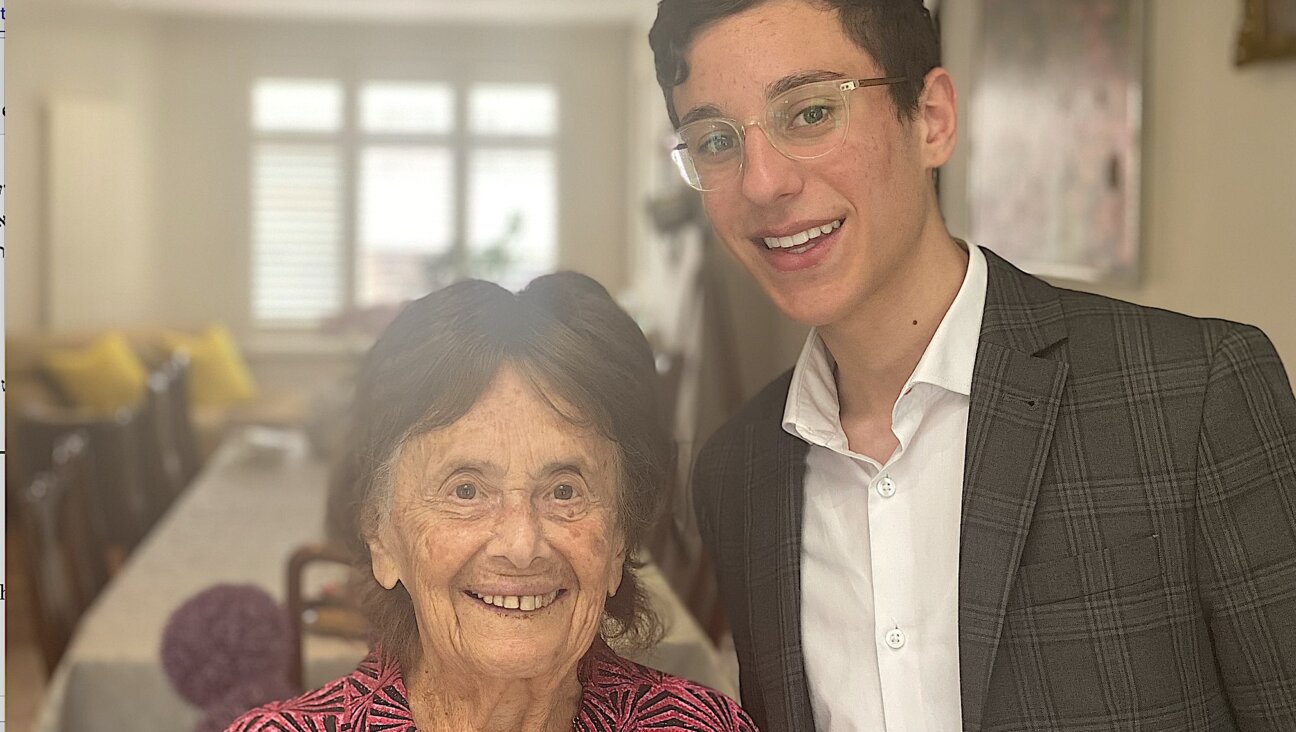B-Movie Auteur Larry Cohen Dies At 77

Screenwriter and director Larry Cohen. Image by Getty/Albert L. Ortega/Contributor
Larry Cohen’s script for “Phone Booth” was dreamed up in the 1960s, filmed in less than two weeks in 2000 on a budget of $13 million and released in 2003 just before its premise – about a guy trapped in a phone booth – collapsed into period conceit with the mass extinction of pay phones. The hugely successful rollout of the Joel Schumacher-directed “Phone Booth” marked a renaissance for Cohen, a cult B-movie filmmaker, and the end of a certain kind of quick, cheap and analog movie he was known for making. Tellingly Cohen’s last big film was called “Cellular” and had a much poorer gross at the box office.
Cohen died Saturday at the age of 77, according to The Hollywood Reporter, leaving behind a massive filmic legacy including such classics as the blaxploitation crime drama “Black Caesar” (1973) and its sequel “Hell Up in Harlem” (1973). His work often cast black actors and skewered the nature of race relations in America and made use of effective, if at times schlocky, practical effects.
Born July 15, 1941 in Washington Heights, and brought up in Riverdale, Cohen began his career in show business in 1958, before he was even out of his teens, with a television adaptation of the Ed McBain novel “The Eighty Seventh Precinct.” Throughout the next decade he contributed scripts for more hardboiled and genre work including the TV version of “The Fugitive” and “Zane Grey Theatre,” and soon developed his own series “Branded,” a Western, and the ‘60s science fiction show, “The Invaders.” In 1966, he broke onto the big screen with “Return of the Seven,” the sequel to “The Magnificent Seven.”
He became an auteur in the 1970s with his first film, “Bone” (1972). The movie is a blaxploitation comedy about a black man (Yaphet Kotto) who takes a white married couple hostage when they mistake him for their exterminator. In 1974, Cohen followed“Bone,” “Black Caesar” and “Hell Up in Harlem” with “It’s Alive.” Breaking from the blaxploitation formula, “It’s Alive” is a mutant-baby-creature feature with a score by Hitchcock regular Bernard Herrmann and effects by “American Werewolf in London” alum Rick Baker. The film was a shoestring hit for Warner Brothers and led to two sequels.
With the “It’s Alive” franchise, the “Maniac Cop” films and monster movies like “Full Moon High” (1981) – a teen werewolf comedy before “Teen Wolf” – Cohen made a reputation for himself as an elder statesman of budget horror known for his lightning quick turnarounds. Through the ‘70s and ‘80s, he often released two, and sometimes even three, films a year. Often times those films boasted huge stars, including Bette Davis in her last onscreen role as a literally witchy woman in “Wicked Stepmother” (1989). Cohen also became one of the genre’s sharpest satirists, amplifying stereotypes to an absurd timbre to emphasize how they’re nothing more than noise.
In 2017, many years after his last writing and directing credits, Cohen received a tribute befitting his influence on the culture from the big screen to the small screen. Steve Mitchell’s documentary “King Cohen: The Wild World of Filmmaker Larry Cohen” interviews Martin Scorsese, the actor Fred Williamson and John Landis who pay tribute to his unique legacy. That same year, in an interview promoting the film, Cohen lamented how little the world had changed since he first took to the director’s chair.
“Many of the films I made are extremely volatile and deal with controversial subjects like racism,” Cohen told Diabolique Magazine. “My first picture, ‘Bone,’ is way ahead of its time — even today. When I made it in the ’70s, I thought by the time we got to 2015 that racism would be finished — but it isn’t.”
PJ Grisar is the Forward’s culture intern. He can be reached at [email protected].




















